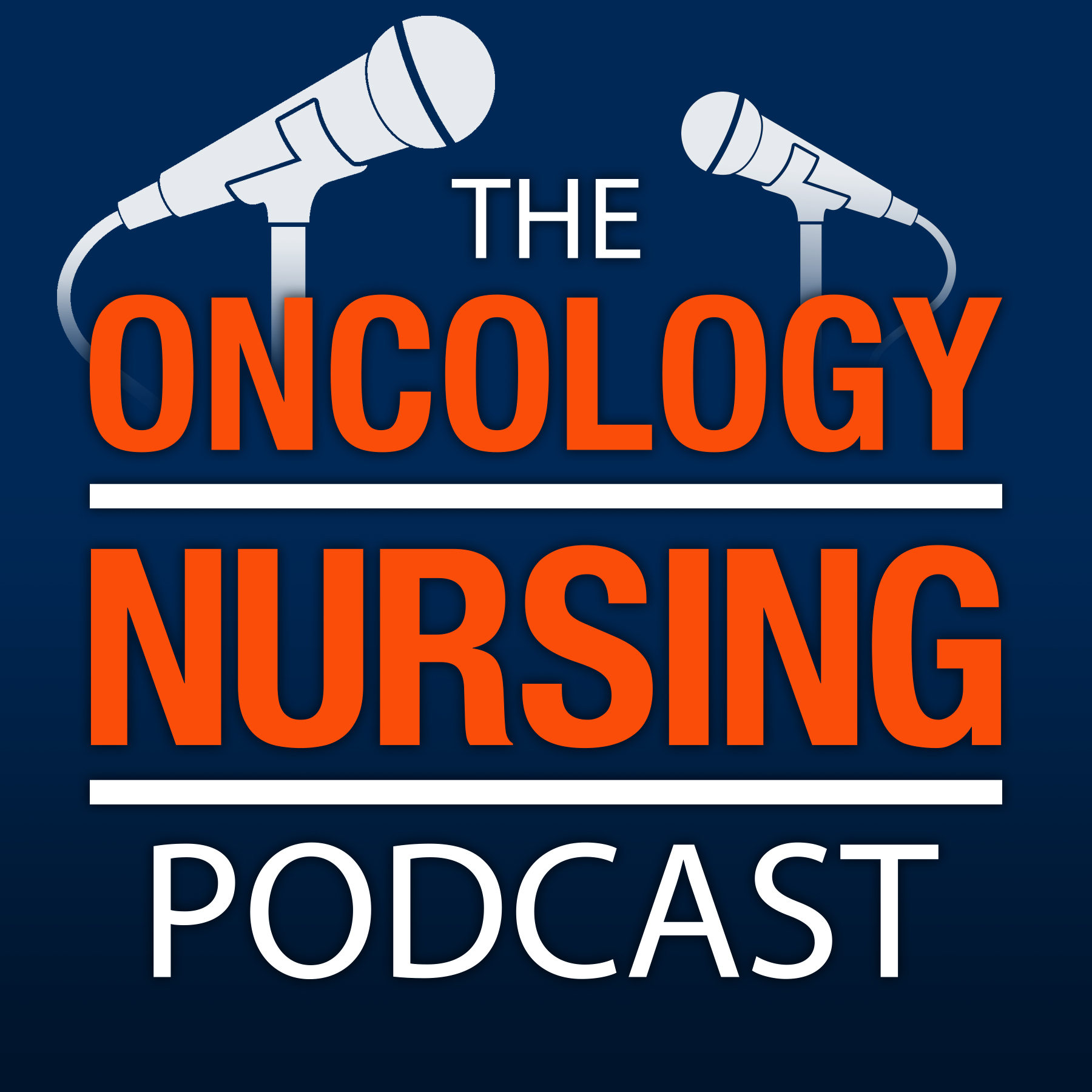Episode 321: Pharmacology 101: CYP17 Inhibitors
Description
Episode 321: Pharmacology 101: CYP17 Inhibitors
“I think we’re in a scientific golden age for prostate cancer and probably cancer as a whole, but we’re talking about prostate cancer today. So I’m excited to be sitting on the front lines, seeing the new ways that we can help our patients. But I do still think CYP17 inhibitors will continue to be one of our main weapons against prostate cancer for a very long time,” Andrew Ruplin, PharmD, clinical oncology pharmacist at Fred Hutchinson Cancer Center in Seattle, WA, told Jaime Weimer, MSN, RN, AGCNS-BS, AOCNS®, manager of oncology nursing practice at ONS, during a conversation about the CYP17 inhibitor drug class.
Music Credit: “Fireflies and Stardust” by Kevin MacLeod
Licensed under Creative Commons by Attribution 3.0
Earn 0.5 contact hours of nursing continuing professional development (NCPD) by listening to the full recording and completing an evaluation at myoutcomes.ons.org by July 19, 2026. The planners and faculty for this episode have no relevant financial relationships with ineligible companies to disclose. ONS is accredited as a provider of nursing continuing professional development by the American Nurses Credentialing Center’s Commission on Accreditation.
Learning outcome: The learner will report an increase in knowledge related to CYP17 inhibitors.
Episode Notes
Complete this evaluation for free NCPD. Oncology Nursing Podcast episodes: Pharmacology 101 series Episode 242: Oncology Pharmacology 2023: Today’s Treatments and Tomorrow’s Breakthroughs Episode 154: New Drug Approvals for Metastatic Castration-Sensitive Prostate Cancer ONS Voice article: The Case of the Genomics-Guided Care for Prostate Cancer ONS course: Safe Handling Basics ONS books: Chemotherapy and Immunotherapy Guidelines and Recommendations for Practice (second edition) Safe Handling of Hazardous Drugs (fourth edition) Clinical Journal of Oncology Nursing article: Navigating Treatment of Metastatic Castration-Resistant Prostate Cancer: Nursing Perspectives Oncology Nursing Forum articles: Interventions to Support Adherence to Oral Anticancer Medications: Systematic Review and Meta-Analysis ONS Guidelines™ to Support Patient Adherence to Oral Anticancer Medications ONS Huddle Card: Hormone Therapy ONS Biomarker Database (refine by prostate cancer) ONS Learning Libraries: Cancer of the Genitourinary Tract Oral Anticancer Medication Oral Chemotherapy Education Sheets To discuss the information in this episode with other oncology nurses, visit the ONS Communities.
To find resources for creating an Oncology Nursing Podcast™ Club in your chapter or nursing community, visit the ONS Podcast Library.
To provide feedback or otherwise reach ONS about the podcast, email [email protected].
Highlights From This Episode
“Identification of CYP17 as a target to decrease androgen production led to the first synthesis of a dedicated inhibitor of CYP17 named abiraterone acetate in the 1990s. But it would also not be until 2011, when there was sufficient evidence through clinical trials, for the [U.S. Food and Drug Administration] to approve abiraterone as treatment for castrate-resistant prostate cancer. And since then, abiraterone has been studied in many different stages of prostate cancer and has demonstrated clear benefits to survival for patients with metastatic or nonmetastatic prostate cancer and in the castrate-sensitive setting, as well.” TS 3:07
“Patients on abiraterone, regardless of the formulation that they get, they also have to receive an oral steroid every day while undergoing treatment due to the risk of that mineralocorticoid excess. … CYP17 inhibition by abiraterone leads to the loss of negative feedback on the adrenocorticotropic hormone, or ACTH, through a relative cortisol deficiency, which then results in higher levels of ACTH, which then cause the formation of excess precursors, including those mineralo
More Episodes
“Under normal conditions, EGFR [epidermal growth factor receptor] is in an auto-inhibited state. And it’s only when it’s needed that it’s upregulated. But when you have cancers that there is either a mutation in the EGFR or an overexpression, what you see is a dysregulation of normal cellular...
Published 11/08/24
Published 11/08/24
Episode 335: Ultrasound-Guided IV Placement in the Oncology Setting
“Much like many experienced oncology nurses, I learned how to do IVs with palpation. I got really good at it. And so I thought, there’s no way I need this ultrasound. But we know now that our patients are sicker. There are...
Published 11/01/24


